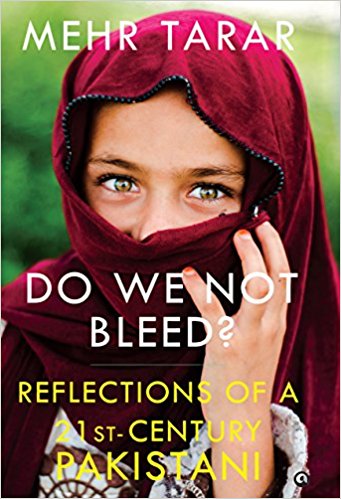Mehr Tarar’s book Do We Not Bleed? Reflections of a 21st-Century Pakistani in several ways breaks the pattern and monotony prevalent in the post- 9/11 discourse on Pakistan. The book is a digression as this narrative is not solely tangled in the hard-core security paradigm on which most of the recent published works on Pakistan are modelled. Contrary to this, the book captures perspectives of the broader populace in Pakistan and in the process unravels the pain and despair of ordinary people and how they struggle to cope with everyday challenges—social, political and perhaps economic. The book does dwell upon issues pertaining to security—on terrorism, political killings, etc.
However, by collating social dogmas and its ills like honour killing and inherent patriarchy, the book steers away from narratives that have obsessively focused on security and violence, often enveloping the reader with a sense of abject despondency.
At first glance, the book comes across as a journalist’s diary that coalesces a wide spectrum of impressions abstracted from over a period of time. Thematically, it is divided into five segments: i) Religious Persecution and Other Discontents, ii) The Pakistan You Do Not Know, iii) Remarkable Pakistanis, iv) Family and Friends and, v) The India Connection. In the course of various sections, the author rakes up several watersheds in Pakistan’s recent, rather violent history, some of which have gripped headlines not only within Pakistan but in the wider world—killing of the Governor of Punjab, Salman Taseer in 2011 and later the gruesome murder of an aspiring young woman, Qandeel Baloch, considered a rule breaker of kinds in the ultra-conservative social landscape of Pakistan. The book delineates profiles of ordinary women with extraordinary courage and grit belonging to Pakistan and who come from different walks and strata of society—a physically challenged but spirited woman Muniba Mazari and a passionate educator Shazia Mustaq. Similarly, the author spells out notes on her own personal life in fine detail especially her doting relationship with a teenage son whom she brought up singly with a sense of pride.

